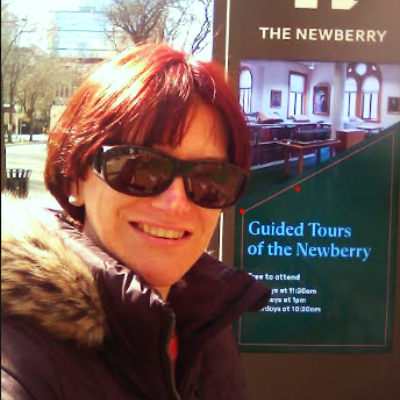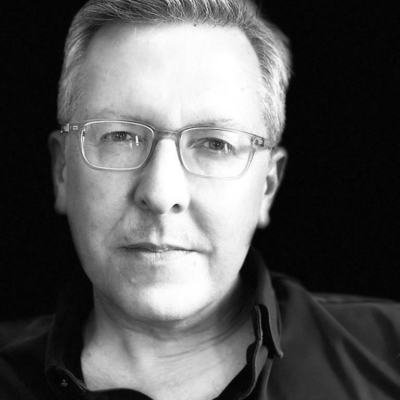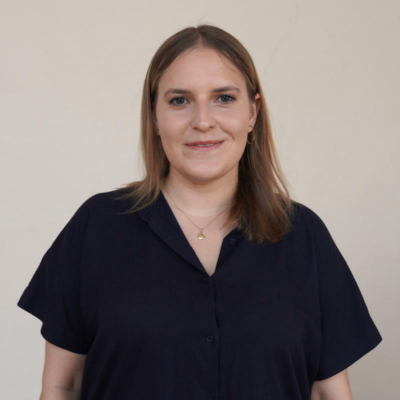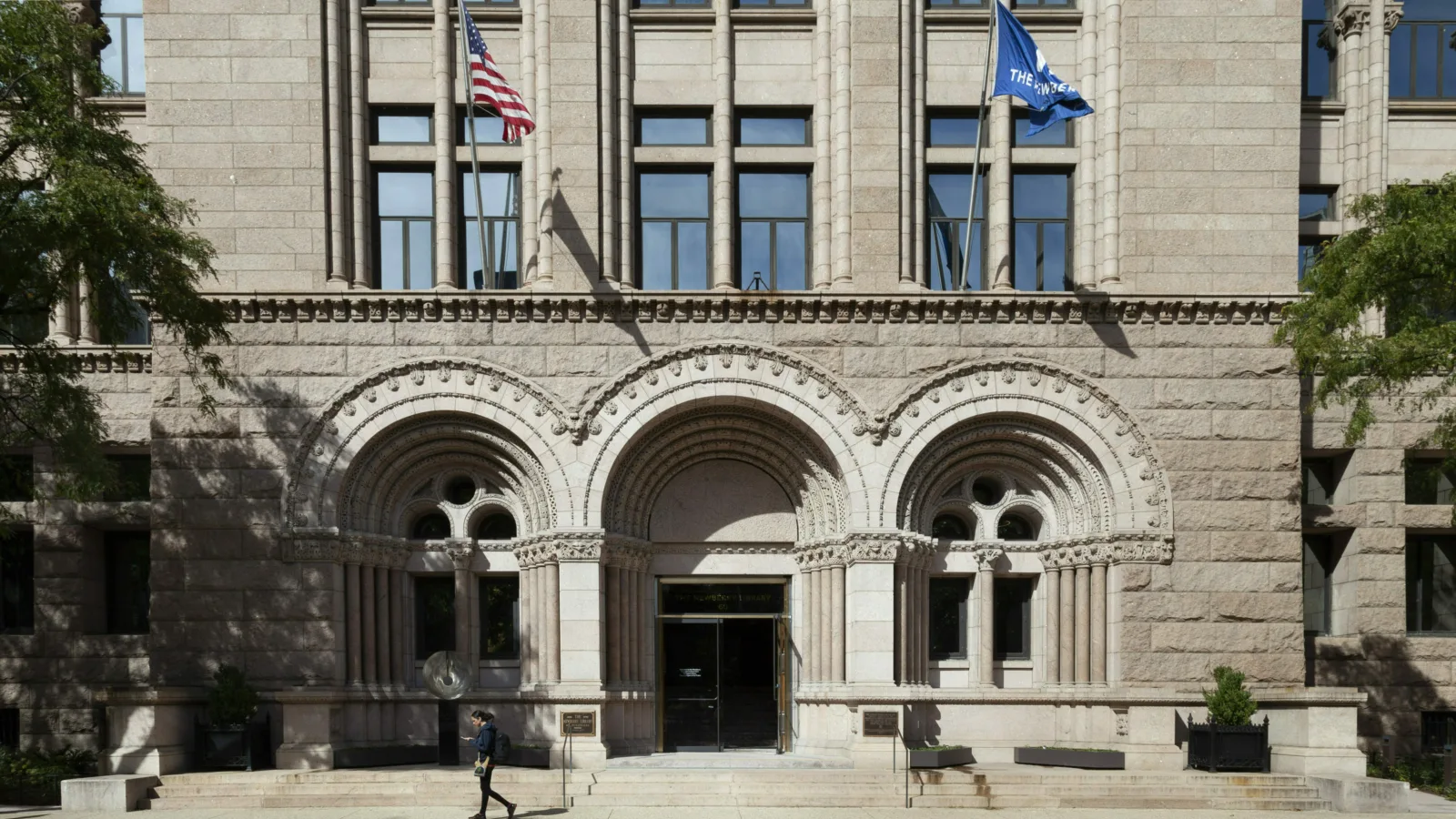Each academic year, researchers who have been awarded long-term fellowships join us at the Newberry for four to nine months. While here, they immerse themselves in the collection, pursuing their scholarly work. Fellows are an important part of the Newberry’s learning-centered community and have multiple opportunities to present their works in progress with both the Newberry and Chicago community at large.
Get to know a few of the Fellows that began their residence earlier this month.
Hayley Cotter

The Monticello College Foundation Fellowship for Women and the Mellon Foundation Fellow
Lecturer in Literature at the University of Massachusetts Amherst
The Laws and Customs of the Early Modern Sea, 1483-1681
1. Can you share a summary of your journey up until now?
I am trained as a literary scholar. Before I started my doctoral degree, I worked briefly for an admiralty lawyer, and through that experience was introduced to the fascinating world of maritime law. As I wrote my dissertation, I realized that the law of the sea provided a perfectly interdisciplinary lens through which to understand the early modern period: indeed, maritime lock unlocks the global Renaissance. While literary history forms my intellectual foundation, I have integrated scholarship from legal history, cartography, cultural history, bibliography, art history, and material histories of the book into my research.
2. What drew you to a fellowship at the Newberry?
I first visited the Newberry in March 2017, when the Renaissance Society of America held their annual meeting in Chicago and the Newberry hosted a reception for graduate students. From that point forward, I considered the Newberry the epicenter of Renaissance studies in the United States. As I began developing ideas for my second book project, I began to focus on cartography in a more serious way. Newberry’s collection strengths in both early modern books and cartographic materials made it the perfect scholarly space in which to conduct my current work.
3. What project will you be focusing on during your time at the Newberry?
I will be writing my second book, currently under contract with Palgrave Macmillan, which is an interdisciplinary study of the laws and customs of the early modern sea.
4. Have you spent time in Chicago before? What are you looking forward to doing with your time in Chicago?
Although I have not spent extended periods in Chicago, it is probably my favorite American city. I am originally from Ohio, and I’ve felt right at home whenever I’ve visited. I look forward to visiting the Art Institute regularly, attending performances by the Chicago Symphony Orchestra and the Lyric Opera of Chicago, and exploring the city’s many dining options. And as a lover of cold weather, I am especially excited about winter in Chicago.
Enrique Garcia Santo-Tomas

National Endowment for the Humanities and Audrey Lumsden-Kouvel Fellow
Frank P. Casa Collegiate Professor of Spanish at the University of Michigan
Sparks of Recreation: Playing with Fire in Spain, 1560-1760
1. Can you share a summary of your journey up until now?
I am a scholar of early modern Spanish literature and culture. I received my MA and PhD in Hispanic Studies from Brown University, and have spent most of my career at the University of Michigan. I have written extensively on authors such as Lope de Vega (1562-1635), Alonso de Salas Barbadillo (1581-1635), and Miguel de Cervantes (1547-1616), among others. My research has been driven by the desire to build bridges between literature and other phenomena like the rise of the printing press, life in the early modern city, the practice of medicine, and the history of science and technology in the Iberian Peninsula. I have written books on all these conversations, and I hope to continue doing so in the coming years. I have also prepared critical editions of several major pieces of the period, and have edited a handful of volumes featuring the work of some of the most exciting scholars in the field. Since 2022 I am the General Editor of the journal Comedia Performance.
2. What drew you to a fellowship at the Newberry?
I had conducted research at the Newberry before, and had always had a wonderful experience there, despite my time constraints. The Library has a world-class collection of primary texts in my field, many of them impossible to find anywhere else. And so when the opportunity arose, I decided to apply with a project that would benefit immensely from having access to such a comprehensive array of sources. Additionally, the way the fellowship program is structured really appealed to me, not only for what I could get from it, but also for what I could humbly contribute with. The combination of ‘slow’ time to reflect on the different parts of the project I presented and the archival wealth this place offers to the disciplines I work on, makes of this fellowship an ideal opportunity to write a substantial part of my next book. I am also excited to join the Newberry community by sharing my work with other fellows and also by learning from them.
3. What project will you be focusing on during your time at the Newberry?
My project is titled Sparks of Recreation: Playing with Fire in Spain, 1560-1760. It examines a set of relations between bodies and landscapes by putting the cultural histories of peoples in dialogue with the transformation of nature. Coinciding with the explosive growth of Madrid after becoming Spain’s capital (1561), these are the decades when early modern literary fires leave the exclusive domain of the solemn and join the quotidian, becoming festive and leisurely as much as tragic and destructive. The texts that provide a distinct voice through fire imagery are fascinating to read, but even more so are those that express agency as fire, as was the case with figures as distant as midwives and war veterans. Intrigued by the abundant presence of fire in early modern fiction, I seek to recover its little-known but pivotal role in shaping the modern subject and consolidating the absolutist Habsburg state. My project ultimately asks: what was at stake in this transition from the iconic to the political, and how did the realm of fiction manage to shape this shift? To answer these questions, I plan to examine a constellation of texts in their effort to capture the material and symbolic valences of the lifecycle formed by sparks, flames, smoke, and embers that made of fire a productive component of Spanish fiction.
4. Have you spent time in Chicago before? What are you looking forward to doing with your time in Chicago?
I have. I hope to explore new parts of the city, and to fully enjoy its vibrant cultural life.
Anastazja Grudnicka

The Evelyn Dunbar and Ruth Dunbar Davee Fellow
Postdoctoral Scholar of History at European University Institute
Feeling Peace in Reformation Europe
1. Can you share a summary of your journey up until now?
I’m a historian of early modern Europe. My research primarily concerns religion and sociability with a particular focus on identity, materiality, and peacemaking. In other words, my work seeks to understand how, during times of intense religious division, individuals of different religious predilections managed to get along, how this ‘getting along’ looked like, and how it shaped their culture.
I read History at the University College London and University of Cambridge. I then returned to UCL, where I was the Wolfson Postgraduate Scholar in the Humanities at University College London and received my doctorate in 2021. My dissertation examined the religious formation of Matthias Habsburg, the often-overlooked Holy Roman Emperor who, on the eve of the Thirty Years’ War, sought to establish peace between Catholics and Protestants in Central Europe. After completing my doctorate, I joined the European University Institute in Florence, Italy, where I’ve been working on my first monograph.
2. What drew you to a fellowship at the Newberry?
I was initially drawn to the Newberry by its exceptional collections, particularly those related to religious and early modern history. My project will greatly benefit from the opportunity to engage with the rare books, manuscripts, visual material, and musical sources housed at the Newberry. I have also been consistently impressed by the research that has emerged from the Newberry, particularly from the Center for Renaissance Studies, which stood out to me as an exceptionally attractive environment for developing my project and connecting with scholars working on related topics. Given that my work intersects history, theology, art history, and musicology, the Newberry’s interdisciplinary character makes it an ideal place for me to advance my research. I am excited about this opportunity to participate in the Newberry’s vibrant academic community.
3. What project will you be focusing on during your time at the Newberry?
At the Newberry, I will be developing a new project that explores what Europeans understood peace to be in the early modern period. Traditionally, this era—marked by profound religious transformations in the sixteenth and seventeenth centuries—has been associated with conflict. The dramatic religious divisions, alongside intensified processes of state formation, militarization, and overseas expansion, were indeed sources of violence and war. However, these religious divisions also provided opportunities for peacemaking. Despite their differing religious beliefs, early modern men and women devised ways to coexist. Throughout this period, peace was a ubiquitous concept, yet it remains little understood today. By looking beyond prescriptive definitions of peace, I aim to uncover how people experienced peace during this turbulent time in European history. In doing so, I hope to establish religion and the early modern period more firmly within the broader histories of peace.
4. Have you spent time in Chicago before? What are you looking forward to doing with your time in Chicago?
This will be my first time in Chicago, and I’m really looking forward to it! Outside of my work at the Newberry, I’m excited to dive into the city’s cultural scene. I’m a big fan of Marc Chagall, so I can’t wait to see his Four Seasons mosaic at Chase Tower Plaza and check out his collection at the Art Institute. I’m also an amateur gardener, so I’m looking forward to exploring some of the city’s lovely gardens, especially the Lurie Garden. Overall, I’m eager to experience everything Chicago has to offer!
This story is part of the Newberry’s Donor Digest, Fall 2024. In this newsletter, we share with donors exciting stories of the work made possible by their generosity. Learn more about supporting the library and its programs.
